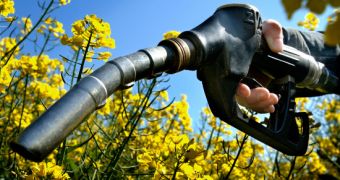A paper published in the journal Molecular BioSystems documents the possibility to use a fungus known to the scientific community as Trichoderma reesei to speed up the process of turning plants into fuel. What's more, the fungus is expected to make said process significantly more cost-effective than it currently is.
In the paper, scientists explain that, at least for the time being, using materials such as corn stalks and wood chips to obtain biofuels requires noteworthy amounts of money. Besides, it often happens that it takes lots of time and hard work for such transformations to be successfully carried out.
By the looks of it, Trichoderma reesei produces several enzymes that have high chances to help researchers sort out these issues.
EurekAlert tells us that the fungus first caught scientists' eye during World War II, when it started “chewing” through the tents of US troops stationed in the Pacific.
Researchers working with the US Department of Energy's Pacific Northwest National Laboratory are now trying to use the enzymes it produces to optimize the process of making biofuels.
“The ultimate goal is to begin with a plant material like corn stalks, for instance, and to subject it to a cocktail of enzymes that would convert those plants to fuel,” chemist Aaron Wright explains.
“It takes a series of steps to do that, and the cost has to come down if these fuels are to compete seriously with traditional hydrocarbon-based fuels,” he goes on to argue.
The same source details that, according to investigations carried out thus far, Trichoderma reesei produces several dozen different enzymes, all of which seem quite gifted at breaking down large sugar polymers and turning them into smaller energy-storing compounds that can later be used to make biofuels.
Scientists are now carrying out experiments intended to help them figure out which combination of these enzymes would yield the best results in terms of perfecting the process of turning plants into fuels.
“Identifying exactly which enzymes are doing most of the work you need done is crucial for making this an economical process,” Aaron Wright comments on the importance of these experiments.
“We're trying to keep tabs on the precise activity of every enzyme as each goes through a very complex process, as conditions like temperature and pH vary, to measure their activity through each stage. We can test the whole mixture, and we can also tease out each individual contribution,” he further details on his and his colleagues' work.
The enzymes that researchers are presently focusing on are known as glycoside hydrolases.

 14 DAY TRIAL //
14 DAY TRIAL //